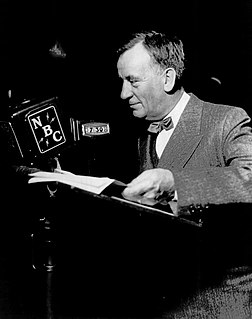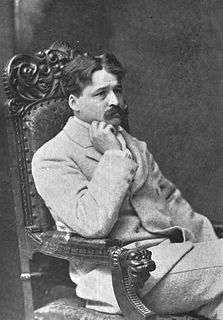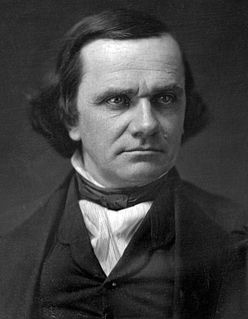A Quote by H. L. Mencken
All human progress, even in morals, has been the work of men who have doubted the current moral values, not of men who have whooped them up and tried to enforce them.
Related Quotes
Moral certainty is always a sign of cultural inferiority. The more uncivilized the man, the surer he is that he knows precisely what is right and what is wrong. All human progress, even in morals, has been the work of men who have doubted the current moral values, not of men who have whooped them up and tried to enforce them. The truly civilized man is always skeptical and tolerant.
Art is not and never has been subordinate to moral values. Moral values are social values; aesthetic values are human values. Morality seeks to restrain the feelings; art seeks to define them by externalizing them, by giving them significant form. Morality has only one aim - the ideal good; art has quite another aim - the objective truth... art never changes.
"Judge not, that ye be not judge"... is an abdication of moral responsibility: it is a moral blank check one gives to others in exchange for a moral blank check one expects for oneself. There is no escape from the fact that men have to make choices; so long as men have to make choices, there is no escape from moral values; so long as moral values are at stake, no moral neutrality is possible. To abstain from condemning a torturer, is to become an accesory to the torture and murder of his victims. The moral principle to adopt... is: "Judge, and be prepared to be judged."
The hell of human suffering, evil and oppression is paved with good intentions. The men who have most injured and oppressed humanity, who have most deeply sinned against it, were according to their standards and their conscience good men; what was bad in them, what wrought moral evil and cruelty, treason to truth and progress, was not at all in their intentions, in their purpose, in their personal character, but in their opinions.
Strength, Courage, Mastery, and Honor are the alpha virtues of men all over the world. They are the fundamental virtues of men because without them, no 'higher' virtues can be entertained. You need to be alive to philosophize. You can add to these virtues and you can create rules and moral codes to govern them, but if you remove them from the equation altogether you aren't just leaving behind the virtues that are specific to men, you are abandoning the virtues that make civilization possible.
The world values the seer above all men, and has always done so. Nay, it values all men in proportion as they partake of the character of seers. The Elgin Marbles and a decision of John Marshall are valued for the same reason. What we feel in them is a painstaking submission to facts beyond the author's control, and to ideas imposed on him by his vision. So with Beethoven's Symphonies, with Adam Smith's Wealth of Nations - with any conceivable output of the human mind of which you approve. You love them because you say, These things were not made, they were seen.
I am now speaking of rights under the Constitution, and not of moral or religious rights. I do not discuss the morals of the people of Missouri, but let them settle that matter for themselves. I hold that the people of the slaveholding States are civilized men as well as ourselves, that they bear consciences as well as we, and that they are accountable to God and their posterity and not to us. It is for them to decide therefore the moral and religious right of the slavery question for themselves within their own limits.
You've got a generation of young men - almost all are young men - in situations of great economic hardship, where they don't really have work. The chances of them making a decent life for themselves, of making a family, living in a kind of decent, happy way, are very, very remote. It's very hard for them to ever even have that as a dream, so when people are that deprived of the ordinary hope of human beings, it creates anger. And that anger can be channeled by unscrupulous persons, whether secular or religious leaders, and there's been a lot of that.
Every step in human progress, from the first feeble stirrings in the abyss of time, has been opposed by the great majority of men. Every valuable thing that has been added to the store of man's possessions has been derided by them when it was new, and destroyed by them when they had the power. They have fought every new truth ever heard of, and they have killed every truth-seeker who got into their hands.


































